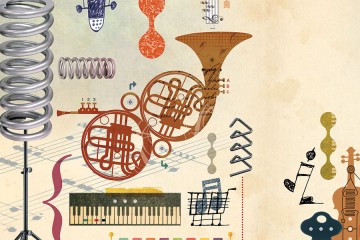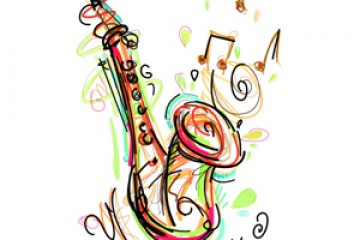Unlike lectures from your mom, music doesn't go in one ear and out the other.
It jingles around inside your brain, calling to mind suppressed memories, playing tricks on you, relaxing you, prompting you to cry, forcing you to laugh, getting you pumped to bench those mean-looking 20-pounders.
Some of our most significant life events—graduations, weddings, Walter White's ultimate demise—are underscored by fiercely emotive soundtracks. There's just something about music that lends itself to the deeply visceral experience of being a human being.
But what exactly is it that gives music its control over us?
On January 30-31, 2014, Peabody Institute will host the Music, Mind, Meaning Conference, a two-day series of lectures tackling this and related questions. Presentations will explore the idea of musical meaning by examining issues of creativity, culture, and memory from the perspectives of musicology and neuroscience. In addition to performances by Grammy-nominated jazz pianist Vijay Iyer, and tenor saxophonist/Peabody Jazz Studies department chair Gary Thomas, the event will include keynote addresses by three renowned scientists currently doing research in these fields.
This event is supported by a grant from Hopkins' own Brain Science Institute, which means registration is free for all JHU faculty, staff, and students. The fee for guests is $100.
Additionally, the Music, Mind, Meaning conference has issued a call for papers. Abstracts are due Dec. 5. You can find more information at www.mmmbaltimore2014.org.
Posted in Arts+Culture, Science+Technology
Tagged mind & brain, music, neuroscience, cognitive science, jazz









